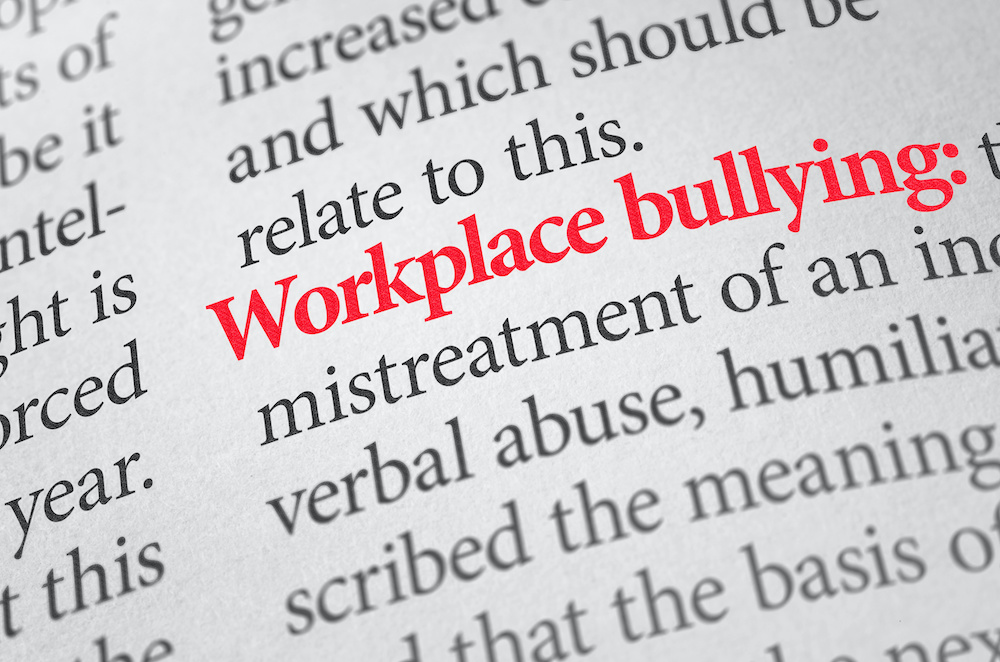
Protecting management rights: Strategies for managing bullying and harassment
Experts weigh in on the rise of bullying and harassment in the management rights industry
In an increasingly contentious world, issues intensify within multi dwelling buildings, where neighbours not only reside beside each other but also above and below. For onsite managers in these buildings, the success of their management rights business hinges on their ability to cultivate strong relationships with unit owners, residents, investors, and notably, their building’s body corporate committee.
Body corporate committee members, elected by fellow unit owners, serve as volunteers. However, depending on the size and age of the building and its residents, this role can become all-encompassing and time-consuming.
Article originally published in Resort News – subscribe HERE
Read the new Autumn print edition of AccomNews HERE
Those who self nominate for bodies corporate, more often than not, do so out of a desire to ensure their asset is well managed and to promote a well functioning community. It’s in their best interest, therefore, to collaborate effectively with the onsite manager or caretaker, yet in some instances, they have another agenda, and it only takes one difficult personality to make life challenging for managers.
Even minor disagreements can escalate into bullying and harassment if left unchecked.
Trevor Rawnsley, CEO of ARAMA, has noted a troubling trend of managers reporting instances of bullying and harassment within their complexes, especially exacerbated by the COVID-19 pandemic.
“There’s too much angst and unkindness in strata, especially since COVID,” Mr Rawnsley observed. “Consumers are more aggressive toward retail and hospitality staff, and it’s no different for our people.”

The rapid rise of social media and the common use of online communication also amplifies problems, says Tania Stewart, Business Developments/Community Manager at SSKB.
“With the prevalence of bullying heightened by online communication, we advocate for proactive measures such as phone calls before emails to prevent misunderstandings.
“Education plays a vital role in preventing conflict,” Ms Stewart pointed out.
“Bullying and harassment have no place in our communities. That’s why we are passionate about working with all stakeholders; lot owners, committee members and building managers to mitigate conflicts in the future.”
Kelley Rigby, Founder of Letts Rebuild also believes that education is key. “Educating property owners in our industry can contribute to fostering harmony,” she said.

“Over the past five years, I have been involved in numerous AGMs with unit owners that turn into educational sessions about all aspects of management rights. Knowledge is power, and I firmly believe it can make a difference.
“In the meantime, for those managers who are in the trenches, there are many people and platforms to reach out to for support. Know that in this industry you are never alone!”
Mr Rawnsley agreed. “Small business owners sometimes feel isolated,” he said. “Being part of an association like ARAMA provides support and access to professional counselling, promoting clearer thinking and different reactions to challenging situations.”
To address bullying and harassment in the strata industry. ARAMA collaborates with the Queensland Government and other stakeholders to establish “Psychologically Safe Communities”.
Mr Rawnsley acknowledges that this initiative may not eradicate bullying entirely, but it aims to foster harmonious communities.
He said: “Living and working in harmony is in the best interests of the scheme and therefore in the best interests of the MLR industry.

“It doesn’t matter how the actions are defined – the fact is that there’s too much unpleasantness and too much aggression shown towards managers when they are just trying to do their job.
“There are no real consequences for unit owners who might be guilty of this but there are consequences for onsite managers depending on how they react. Often they find themselves on the back foot trying to defend themselves.”
Resort News has received reports from stressed out managers detailing various types of face to face and online bullying behaviour perpetrated by committee members or unit owners. These include name calling, spreading rumours, and making unfounded accusations of improper business dealings.
Additionally, there have been instances where threats of violence have been made. Such conduct not only creates a hostile environment, but it also poses significant challenges for managers striving to fulfil their responsibilities and importantly it’s detrimental to their livelihood — a significant business investment.
Leading property lawyer Frank Higginson of Hynes Legal said that if a resident manager operates as a company, they are entitled to protection under the Fair Work Act.

However, the challenge lies in the Act’s failure to provide for damages; its primary aim is to prevent bullying, albeit through a potentially protracted process.
“A manager is far better off addressing the underlying issues and resolving them,” Mr Higginson said. “However, this proves challenging in strata settings, where individuals often hold subjective viewpoints.
“In such situations, I tell committee members to treat the manager as they would an employee, despite not being legally bound as such,” he continued.
“Considering some of the behaviour witnessed in strata, if replicated in a traditional office environment, it would likely be deemed appalling and could result in termination.”
Mr Rawnsley explained that ARAMA assisted in legally classifying schemes as workplaces. “Years ago, we supported a member who felt bullied and harassed, we helped facilitate legal defence for them. This member successfully demonstrated workplace harassment. If a resident manager faces harassment in their workplace, it falls under the Workplace Health and Safety Act, with significant ramifications for bullying and harassment.”

Shelter is a basic human right and any perceived threat can be emotionally triggering. This is what is so peculiar about the MLR industry and according to Mr Rawnsley, “it’s why there is often so much more antagonism towards resident managers.”
ARAMA offers a number of support services which can define bullying and harassment and give managers some strategies to cope.
“We run a half day workshop on relationship management, specifically in strata and specifically focused on the relationship between the management rights operator and the body corporate committee. That’s called ARRM – the ARAMA Relationship Revival Masterclass. People learn what bullying and harassment really is and how the way they react to a situation is often more important than the situation itself.
“If a manager retaliates it can escalate a situation that isn’t bullying and harassment to start with, but which then might turn into that
“We also offer A-MAP – ARAMA Member Assistance Program – a free counselling service for ARAMA members.”
ARAMA managers are not on their own and are well supported. A-MAP is a program where they can ring up and receive professional counselling. It’s free, they can undertake their counselling face to face, via Zoom or over the phone.
“We’ve had about 40 members go through that program and it helps them think more clearly and react differently. While all those professional counsellors don’t know anything about strata, they know everything about people and human nature.”
However, Mr Rawnsley acknowledges that while bullying and harassment situations can be very confronting for the resident manager, sometimes the problem is not the other person.
“Sometimes the man in the mirror has a lot to answer for and that can be a bitter pill to swallow for some managers,” he said. “Sometimes, if managers reacted differently to criticism, didn’t take it so personally, and treated it all as a part of business, a lot of these situations would be nipped in the bud.”
Chris Irons, former Queensland’s Commissioner for Body Corporate and Community Management, and current director of Strata Solve, echoed this sentiment.

“Based on the calls I receive, bullying and harassment are top concerns in strata. I advise managers to introspect first.
“It’s a hard thing to ask someone to consider if they did anything to contribute to the situation and what they can do to rectify it.
“Often, what’s perceived as bullying is a disagreement spiralling out of control due to negative reactions. Disputes frequently evolve from one point to another.”
Both Mr Rawnsley and Mr Irons emphasise the importance of self reflection and constructive conflict resolution in managing strata disputes.
While bullying should not be tolerated in any situation, Frank Higginson asserts that bullying is not the same as holding individuals accountable for their work performance.
“Often, these disputes arise due to vague agreements,” Mr. Higginson said. “For instance, a manager might be tasked with maintaining the gardens ‘to a satisfactory standard’ – but satisfactory to who? The language in the agreement is frequently subject to interpretation, adding complexity to the situation.
“Managers may acquire businesses without a full grasp of what they’re purchasing, while committee members volunteer for roles in corporate bodies without comprehensive knowledge of the legal arrangements they’re bound by. Consequently, there’s a perpetual cycle with new managers and committee members, resulting in a rinse and repeat scenario.”
Mr Higginson advocates for dialogue as the most effective approach to resolving strata disputes. “It’s crucial to address issues promptly, the moment a problem is perceived,” he said.
“Identifying differences in perspectives and engaging in constructive dialogue is key. Failure to do so can lead to escalation over time, with blame-shifting, point scoring, and ultimately legal entanglements. Early, amicable intervention is preferable, avoiding the trap of assuming absolute right or wrong, as solutions typically lie somewhere in between.”
Chris de Closey, of Switch Hotel Solutions, has observed instances where committee members exert their power without consideration for the substantial investments made by resident managers in their businesses.

“If a manager perceives they are being bullied,” he says, “it’s crucial to thoroughly document everything, ensuring comprehensive information about the entire event timeline is available. This eliminates concerns regarding conflicting accounts. Documentation must remain strictly factual, devoid of emotive language or personal feelings.
“It should aim for impartiality, merely stating the events that transpired,” he added.
“If the bullying originates from a body corporate member, addressing the issue can be challenging and the best option is to seek external advice on how to approach this individual case. In cases not involving a body corporate member, engaging the body corporate to address the owner directly is an option. If the behaviour persists, legal action may be necessary, potentially resulting in cease and desist orders.”
Industry leader Mike O’Farrell established MLR Services to provide mediation services aimed at facilitating reasonable dispute resolutions for residents, committees, building managers, and body corporates.

He defines workplace bullying as “repeated and unreasonable behaviour directed towards a worker or group of workers, posing a risk to health and safety.” According to Mr O’Farrell, “Unreasonable behaviour” refers to actions that a reasonable person, considering the circumstances, would deem unreasonable, including victimisation, humiliation, intimidation, or threats.
From his experience, he notes most committee members are unaware of, and often do not review, their code of conduct.
To address bullying and harassment, managers have options:
- Ignore it.
- Respond with factual evidence.
- Collaborate with ARAMA to devise strategies for combating it.
- Enlist lawyers to draft a cease and desist letter.
“The most valuable advice I can give,” Mr O’Farrell said, “is to ensure that managers fulfil their duties and report as outlined in their agreements. If they genuinely believe they are being bullied, they should promptly seek guidance from an industry specialist on how to address the situation.
“Fortunately, many industry specialists are willing to assist.”
Mandy has over 17 years of accommodation and tourism industry writing experience and is Editor of AccomNews & Resort News, Publisher of SchoolNews & Director of Multimedia Pty Ltd. She is a retired registered nurse with a 25-year NHS career that followed a few unforgettable years in hotel housekeeping.






